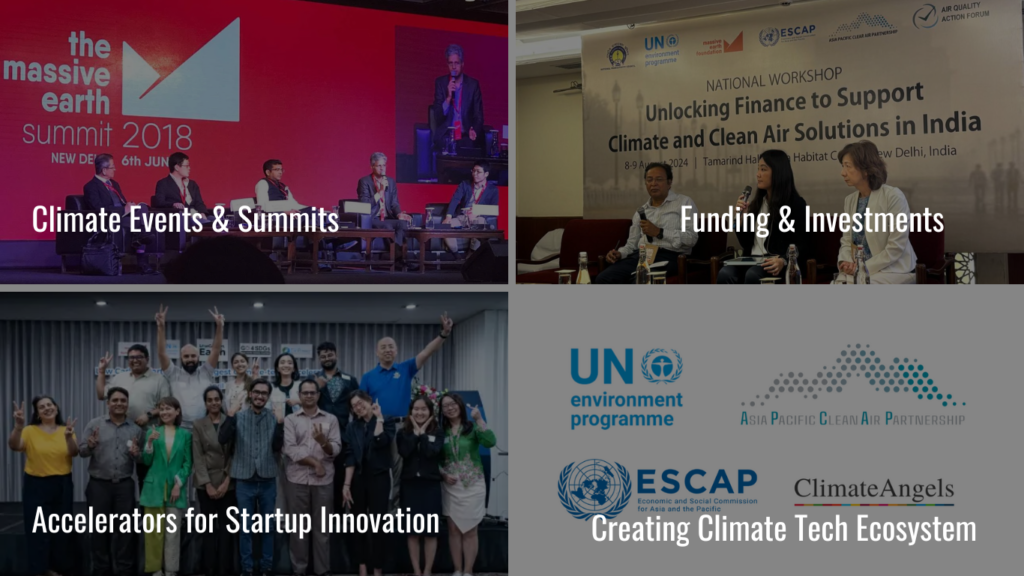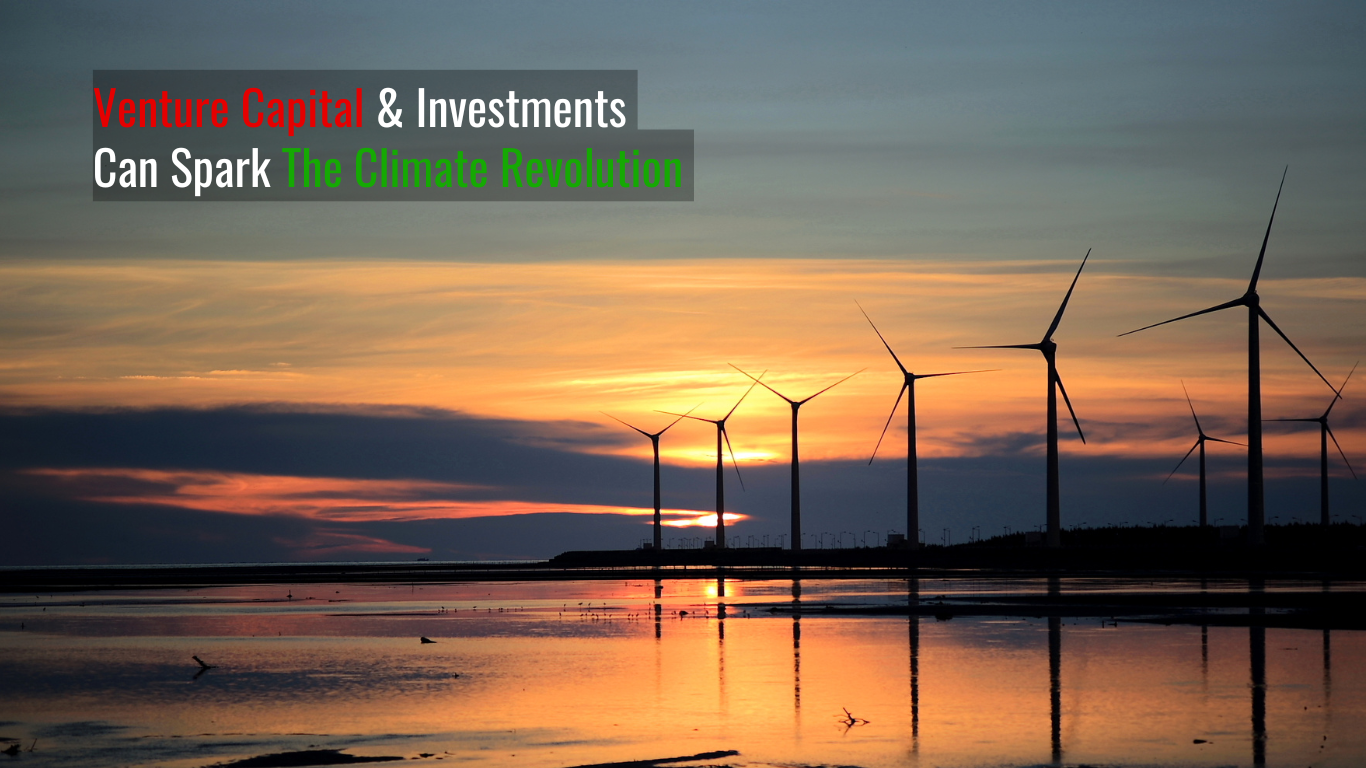What is Clean Tech?
Clean tech refers to any product, service, or process designed to minimize environmental harm by reducing carbon emissions, promoting sustainable resource use, and advancing renewable energy technologies. It represents a significant shift away from traditional fossil fuel-based systems, focusing instead on modern energy solutions such as solar, wind, hydro, and biofuels. Beyond its environmental benefits, clean tech has vast potential for driving energy efficiency, cutting emissions, and generating employment opportunities.
As of 2024, the sector has attracted billions of dollars in investments globally, with venture capital and innovative funding models playing a critical role in its growth. International treaties, progressive policies, and increasing social awareness are further fueling the adoption of clean technologies, positioning the sector as a cornerstone in the fight against climate change.
Why Do We Need Clean Tech?
Industrialization in the 19th century coupled with mass production and urbanization led to the proliferation of fossil fuel based technology systems. These included factories, gas stations, ICE based vehicles that relied heavily on fossil fuels like coal, petroleum, and natural gas. Compounded effects triggered by rapid consumption of resources and increased population resulted in large scale carbon emission all over the planet. Fuels, pollutants, and toxins emitted by these traditional fossil based technologies cloaked Earth’s atmosphere with gasses like carbon, methane, and nitrous oxide, which trapped heat and increased the average temperature of the planet. Basically, the process which should have occurred in millions of years got accelerated in just the space of 175 years.
The carbon emissions from fossil fuel based technologies has resulted in global warming and climate change. The recent development in science and understanding the negative impact of these technologies on the environment has fueled the demand and growth of modern-cleaner technologies which can meet the global need for products without damaging the environment. Thus, the urgent push for clean tech has resulted from the notion that the traditional models of production and development cannot continue if the environment is to be saved.
Furthermore, the alarming reports from WMO, UNEP, and IPCC have revealed the potential catastrophic impact on human society if climate change continues to accelerate. Environmental damages, disruptive seasonal rhythms, loss of natural habitats, social and economic instability, migration, disasters, pandemics, diseases, and death are all looming above human society and humanity and the need to protect the environment is rudimentary.
In this atmosphere of danger and despair, clean tech proves to be the ray of light and hope with the power to cause a paradigm shift by adopting modern technological systems that remove the carbon in air, cut down emissions, are environmental friendly, promote sustainable consumption, and rely on renewable energy for production.
Origin & Development of Clean Tech

Science
The origins of clean technology, or clean tech, can be traced back to the intersection of various interdisciplinary developments such as energy efficiency, renewable energy, and water purification. The concept gained traction as advancements in these technologies made them increasingly affordable and accessible. This shift was further fueled by the growing awareness of the connection between the design principles of the 19th-century industrial revolution and the resulting climate crisis. Early industrial systems were heavily reliant on fossil fuels, leading to widespread environmental degradation and greenhouse gas emissions. Clean tech emerged as a response to these challenges, offering a more sustainable and environmentally conscious approach to technological development.
International Treatise
The global push for clean tech was catalyzed by significant international milestones, such as the 1972 United Nations Conference on the Human Environment, which led to the establishment of the United Nations Environment Programme (UNEP). Subsequent initiatives by organizations like the World Meteorological Organization (WMO) and the Intergovernmental Panel on Climate Change (IPCC) underscored the importance of transitioning to cleaner technologies.
Geopolitics & Harsh Climate
Specific geopolitical and climatic conditions, such as Israel’s arid environment and energy scarcity, further accelerated the adoption of clean tech. Reliance on renewables like solar energy allowed such nations to meet domestic energy demands while reducing dependency on fossil fuels. This momentum was bolstered by international treaties, corporate social responsibility (CSR) goals, and growing public awareness, all of which encouraged both nations and private entities to invest in clean technologies.
Cost Reduction
The dramatic reduction in the cost of clean tech solutions has played a key role in their widespread adoption. One notable example is the plummeting cost of electric vehicle (EV) batteries, which sparked a resurgence of the EV market in 2006 after its initial decline during the 20th century. This breakthrough revitalized the industry, creating opportunities for innovation and exponential growth. Today, clean tech startups with innovative ideas and advanced technological solutions are the primary drivers of a global paradigm shift. Investments in these startups have helped transform the clean tech sector from a niche concept into a booming industry with the potential to reshape how the world approaches energy, sustainability, and economic development.
Role of Venture Capital and Startups in Advancing Clean Tech
Startups with innovative technologies and disruptive business models are pivotal to the advancement of clean tech. Their ability to address diverse sectors, such as low-carbon energy, carbon capture and storage, electric vehicles, agriculture, biofuels, recycling, and renewable energy, positions them as transformative forces in the fight against climate change. These startups often introduce cutting-edge solutions, from digital platforms optimizing energy efficiency to advanced materials that reduce plastic pollution. By leveraging technology and creativity, they are redefining industries and opening pathways for sustainable development.
However, for startups to realize their potential, they require significant funding for research, testing, and scaling up in the early stages. This is where venture capital plays a crucial role. In 2021 alone, global investments in clean tech ventures surpassed $70 billion, highlighting the growing interest of venture capitalists in this field. Venture capital thrives on high-risk, high-reward opportunities, making it an ideal partner for clean tech startups. By providing the financial resources needed to develop innovative solutions, venture capital enables startups to grow and scale, fostering technological breakthroughs that might otherwise remain unrealized.
In addition to funding, policies and regulatory frameworks that support clean tech growth can create a conducive environment for startups to thrive. Incentives such as tax credits, subsidies, and carbon pricing mechanisms encourage investment and innovation in sustainable technologies. Clean tech not only holds the promise of solving climate challenges but also offers significant economic benefits. Startups can drive job creation, build cutting-edge technologies, and position themselves as industry leaders in a rapidly expanding market. Moreover, they contribute to the development of smart cities, eco-friendly products, and environmentally conscious urban landscapes, demonstrating that economic growth and environmental sustainability can coexist.
The synergy between venture capital, innovative startups, and supportive policies underscores the transformative potential of clean tech. By channeling resources into groundbreaking ideas and fostering an ecosystem that encourages experimentation, this collaboration is creating the foundation for a sustainable and resilient future. With continued investment and innovation, clean tech startups have the potential to revolutionize industries and lead the global transition to a low-carbon economy.
How Massive Earth Foundation Is Building Clean Tech

The Massive Earth Foundation (MEF) has positioned itself as a key player in the fight against climate change by actively promoting and supporting clean tech innovations. In partnership with the United Nations Environment Programme (UNEP), MEF has launched initiatives designed to fund and support clean technologies through various programs aimed at reducing carbon emissions, tackling pollution, and driving sustainable development. These initiatives are part of MEF’s broader commitment to addressing the climate crisis through collaborative action and technological innovation.
In 2017, MEF hosted the Massive Earth Summit, one of India’s largest climate-focused events. The summit brought together policymakers, corporate leaders, startups, private investors, and the general public to discuss climate challenges and opportunities in clean tech. This landmark event raised awareness about the importance of climate-focused investments, clean tech innovation, and forward-thinking policies, laying the groundwork for a more collaborative approach to addressing global warming.
Since the summit, MEF has spearheaded numerous pilot projects, accelerators, and research initiatives targeting critical areas such as plastic pollution, single-use plastics, waste management, air pollution, and low-carbon energy. A notable achievement is its partnership with Amazon through the GWA Accelerator, which supported startups developing digital solutions for sustainability challenges. Additionally, MEF’s flagship program, LowCarbon.Earth, now in its fourth year, has made a significant impact by funding and mentoring startups focused on low-carbon solutions across various industries. These efforts have enabled the development of cutting-edge clean technologies while fostering innovation in critical climate-related sectors.
MEF’s continuous collaborations with global organizations like UNEP, UN Women, AVPN, and Climate Angels have been instrumental in creating a positive investment climate for clean tech. By building an ecosystem that unites diverse stakeholders—ranging from investors to startups and policymakers—MEF is fostering a dynamic climate community committed to solving environmental challenges. Its multifaceted approach ensures that clean tech advancements address a broad spectrum of issues, from energy transition to waste reduction, while driving inclusive and sustainable growth.
For investors and startups eager to be part of this transformative journey, MEF offers valuable resources, mentorship opportunities, and access to a growing network of climate-focused initiatives. Explore the possibilities and join the movement by visiting the following links. Together, we can drive innovation and accelerate the transition to a sustainable future.
Conclusion
Clean tech stands as a beacon of hope in the global fight against climate change, offering innovative solutions that balance environmental sustainability with economic growth. From addressing the historical consequences of industrialization to spearheading advancements in renewable energy, clean tech embodies the transformative potential of technology in solving some of humanity’s most pressing challenges. Organizations like the Massive Earth Foundation are at the forefront of this movement, fostering innovation, collaboration, and investment in clean technologies that are reshaping industries and paving the way for a low-carbon future.
The journey to a sustainable world requires the combined efforts of startups, investors, policymakers, and the public. As venture capital and international partnerships continue to fuel this sector, clean tech is set to redefine how we interact with our planet and its resources. By embracing this shift and supporting initiatives like those led by MEF, we can ensure a healthier, more equitable future for generations to come. Now is the time to act, innovate, and invest in clean tech, not only as a solution to climate change but as a cornerstone of sustainable progress.






